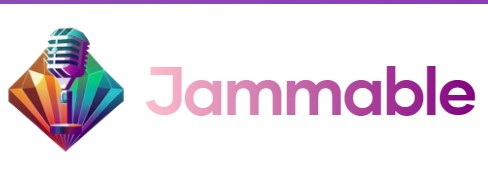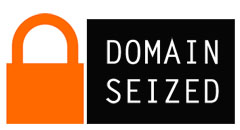-
chevron_right
U.S. Calls Out EU Member States For Piracy Failings in Trade Barriers Report
news.movim.eu / TorrentFreak · Wednesday, 3 April - 18:49 · 5 minutes
 The U.S. Foreign Trade Barriers Report is an annual publication by the Office of the United States Trade Representative (USTR).
The U.S. Foreign Trade Barriers Report is an annual publication by the Office of the United States Trade Representative (USTR).
The report aims to draw attention to matters that represent “significant foreign barriers” to U.S. exports, investment, and commerce.
These barriers typically revolve around copyright infringement and other intellectual property matters, data privacy, and handling of trade secrets, but there’s no shortage of problems in other areas that fall outside our reporting niche here.
Piracy Problems Worldwide
In common with the Special 301 Report, the Foreign Trade Barriers Report is published by the USTR. As such there is some crossover, with many countries appearing on both lists for one reason or another.
On piracy, copyright, and closely related matters, this year’s report begins fairly predictably; Argentina, Bolivia, Brazil, Chile, Colombia, and Costa Rica, then over to Asia for criticism of China and Cambodia, among others.
That U.S. standards are not being met in other countries doesn’t come as a surprise. Russia’s relationship with the United States over Ukraine is certainly strained, with the USTR highlighting ‘Decree 322’, a new measure that restricts the ability of foreign right holders from “unfriendly” states to collect license payments for most types of intellectual property.
Vietnam: World Streaming Piracy Epicenter
Then there’s the section dedicated to Vietnam, home of the world’s most popular pirate sites, dedicated to piracy of mostly US-produced movie and TV show content, but with zero qualms about offering other content, to a massive global audience.
Yet despite Vietnam-based/operated pirate sites being responsible for billions and billions of illegal views, the report remarkably mentions not a single one. There’s not even a nod towards them collectively, or even a short note that they exist at all.
That is remarkable, bordering on incredible, but Vietnam’s Deputy Prime Minister Lê Minh Khái did have a meeting with United States Trade Representative Katherine Tai in Boston on April 2, so that may provide an explanation of sorts.
No Such Pass For EU Member States
The one-year anniversary of RARBG’s sudden demise is just a few weeks away. Closely linked to Bulgaria, RARBG was one of the most reliable public torrent sites to ever exist yet if the Bulgarian government had any hand in its closure , it’s yet to claim any credit.
The Trade Barriers report makes no mention of the disappearance of RARBG but does note that the USTR has “enforcement concerns” including “inadequate prosecution efforts, lengthy procedures, and insufficient criminal penalties, particularly in the area of online piracy.”
In August 2023, Bulgaria amended its Criminal Code which should make investigations of pirate sites more straightforward; the United States says it will monitor whether the changes make any difference to the rate of criminal prosecutions in Bulgaria.
Germany: Upload Filters Aren’t Aggressive Enough
Germany also receives criticism from the United States due to its implementation of the pro-copyright yet much-criticized EU Copyright Directive.
“When Germany implemented the Copyright Directive in 2021, it introduced new requirements for online platforms regarding the filtering of user uploads to prevent the automatic blocking of potentially copyright-protected content for uses that are presumably authorized by law,” the Trade Barriers Report begins.
“Some U.S. stakeholders are concerned that Germany also introduced an overly broad copyright presumption that makes it difficult for creators to enforce their copyrights in music and videos that are used in the background of short-form content that is often posted on social media.”
The Trade Barriers Report elaborates no further but, in broad terms, U.S. rightsholders seem unsettled by Germany’s focus on implementing upload filters (which have the potential to restrict freedom of expression) in a way that respects fundamental rights and acknowledges exceptions to copyright law. These exceptions include caricature, parody, pastiche, and quotation, and by considering these factors, the right to freedom of expression and the right to communicate are preserved.
U.S. stakeholders are also concerned that that Germany’s legal framework for technological protection measures “remains inadequate.” Whether that includes the 2023 ruling of a German court that held hosting company Uberspace liable for hosting the website of youtube-dl, because the open-source tool allows people to download content from YouTube, isn’t made clear.
Poland and Romania
Concerns over the situation in Poland read as follows: “Stakeholders continue to identify copyright piracy online as a significant concern in Poland and noted inconsistent enforcement on the part of law enforcement and backlogs in the Polish courts. Stakeholders also are concerned about illegal camcording and easy access to counterfeit products.”
In isolation these statements seem relatively unremarkable yet when compared to reporting directly from Poland, by the anti-piracy group that represents U.S. rightsholders’ interests in Poland, there’s a difference of opinion. In a ceremony last month, the Sygnal anti-piracy group handed out ‘Golden Plate’ awards to Polish police officers for their excellence in fighting piracy.
“The most difficult cases often end up in the hands of the best officers, who are not only perfectly versed in the legal and technological aspects related to economic crime on the Internet, but also stand out for their commitment, and this year especially – for their extraordinary diligence in handling cases. As a result, several dozen pirate websites and services related to them were closed last year,” said Teresa Wierzbowska, President of the Sygnał Association.
Finally, criticism of Romania follows the same pattern of the last 10 to 15 years. Low penalties for IP-related crimes combined with excellent internet infrastructure has always been a potent mix. The report claims that “some notorious online pirate sites” operate from Romania and since IP penalties are low, law enforcement bundle significant cases under tax evasion files.
“Romania lacks an effective and timely mechanism for rights holders to submit takedown requests against online markets and hosting platforms for infringing material. Adequate resources, including additional training for law enforcement, are needed to enhance enforcement quality,” the report concludes.
Romania, just like any other EU country, must abide by applicable EU law. Once intermediaries are made aware of infringing content, the law says they must take it down or risk incurring liability ( pdf ) .
The 2024 National Trade Estimate Report on Foreign Trade Barriers is available here (pdf)
From: TF , for the latest news on copyright battles, piracy and more.
 Over the past year, new artificial intelligence tools and services have been surfacing everywhere.
Over the past year, new artificial intelligence tools and services have been surfacing everywhere.

 In recent years, copyright holders have
In recent years, copyright holders have





 The
The


 For a long time, pirate site blocking was considered a topic most U.S. politicians would rather avoid.
For a long time, pirate site blocking was considered a topic most U.S. politicians would rather avoid.
 Consumers who want to watch movies or TV-shows online are limited to the content that they are permitted to see in their home country.
Consumers who want to watch movies or TV-shows online are limited to the content that they are permitted to see in their home country.

 Signed into law a quarter century ago, the Digital Millenium Copyright Act (DMCA) aimed to equip copyright holders with new tools to protect their works online.
Signed into law a quarter century ago, the Digital Millenium Copyright Act (DMCA) aimed to equip copyright holders with new tools to protect their works online.

